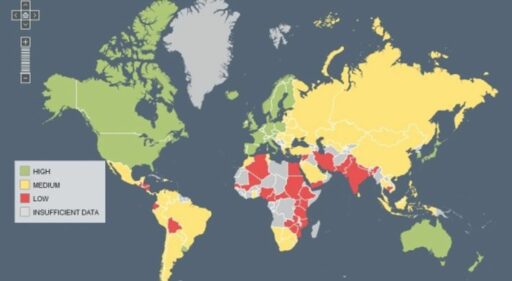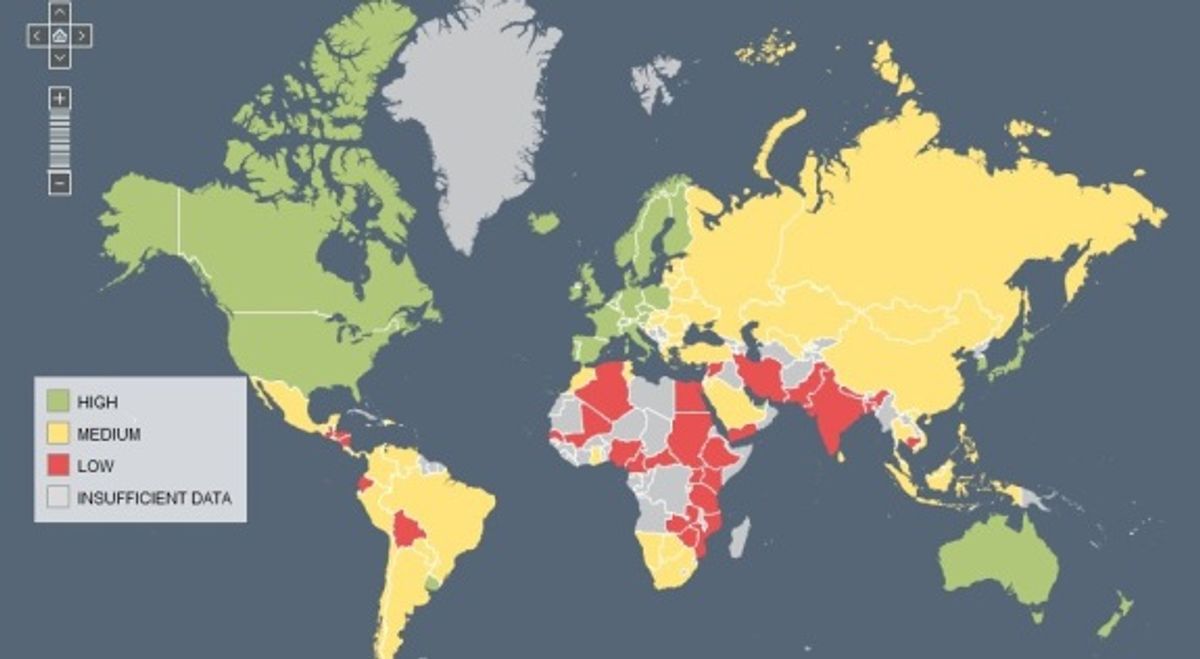In the labyrinth of personal finances, navigating the path to financial stability and prosperity requires a strategic approach rooted in prudent planning and astute management. Whether aiming to build wealth, achieve financial independence, or weather economic uncertainties, the principles of financial planning and finance management serve as indispensable guides on the journey towards fiscal success. This article elucidates the key components of effective financial planning and the art of finance management, providing readers with valuable insights into mastering personal finance for individual prosperity.
Key Takeaways
- Mastering personal finance is crucial for achieving financial stability, independence, and long-term prosperity.
- A strong understanding of personal finance can lead to better financial decision-making and the ability to navigate life’s economic challenges.
- Creating a resilient budget, building an emergency fund, and managing debt are foundational steps towards financial well-being.
- Investing in financial education and continuously adapting strategies are essential for staying ahead in the dynamic landscape of personal finance.
- Financial freedom and success stem from a prosperity mindset, disciplined spending, and strategic planning for life’s milestones.
The Pillars of Financial Stability


Understanding Your Financial Position
To set the stage for financial stability, one must first assess their current financial landscape. This foundational step is crucial for identifying where you stand and what actions you need to take to improve your financial health.
- Income: Understand your total earnings from all sources.
- Expenses: Track your monthly spending to identify necessary costs and potential savings.
- Assets: List items of value you own, such as real estate or investments.
- Liabilities: Summarize your debts, including loans and credit card balances.
By taking a comprehensive look at your income, expenses, assets, and liabilities, you can create a realistic roadmap for achieving your financial goals.
Regularly reviewing your financial position allows you to make informed decisions and adapt to changes in your life or the economy. It’s a continuous process that involves living within your means, avoiding unnecessary debt, and staying informed about financial news and trends.
Creating a Resilient Budget
A resilient budget is the cornerstone of sound financial management. It’s not just about limiting expenses; it’s about creating a flexible plan that can withstand financial surprises and adapt to changing circumstances. Effective budgeting helps you track your spending, identify savings opportunities, and ensure you’re living within your means.
To establish such a budget, consider popular methods like the 50/30/20 rule, where you allocate 50% of your income to needs, 30% for wants, and 20% for savings and debt repayment. Alternatively, zero-based budgeting assigns every dollar to specific categories, ensuring no funds are left unaccounted for.
Central to effective financial planning is a realistic budget that aligns income with expenses, allowing for savings and investment contributions. By tracking spending patterns and identifying areas for optimization, you can judiciously allocate resources and prioritize long-term financial objectives.
Remember, once you’ve found a budgeting method that suits you, discipline is key. Stick to your budget as closely as possible, making adjustments only when necessary to stay on track towards your financial goals.
Building an Emergency Fund
An emergency fund acts as a financial safety net, designed to cover unexpected expenses or financial emergencies. The peace of mind that comes with having this fund cannot be overstated, as it allows individuals to handle life’s surprises without compromising their financial stability. Building an adequate emergency fund is a critical step towards achieving financial resilience.
Experts suggest saving a portion of each paycheck for this purpose. A common recommendation is to allocate 20% of your monthly income to your emergency fund until it reaches a sufficient level. Once the target is met, these savings can then be directed towards other financial objectives.
The goal is to have a fund that covers 3-6 months of living expenses, providing a buffer that can prevent the need for debt accumulation during financial hardships.
Here’s a simple guideline to get started:
- Determine your monthly living expenses.
- Multiply that number by 3-6 to establish your emergency fund goal.
- Set up automatic transfers to your emergency fund with each paycheck.
- Continue contributing until your fund reaches the desired amount.
Remember, the journey to financial prosperity begins with preparedness. An emergency fund is not just a reserve; it’s the foundation upon which financial security is built.
Strategies for Wealth Accumulation


Investing in Financial Education
Investing in financial education is a cornerstone of achieving financial prosperity. Traditional education systems often fall short in preparing individuals for the real-world financial challenges they will face. By proactively seeking knowledge through books, courses, and mentorship, one can significantly enhance their financial literacy. This self-driven approach to learning enables better decision-making and a deeper understanding of wealth management.
- Financial literacy empowers individuals to make informed decisions.
- It is a continuous journey that evolves with market trends and personal circumstances.
- Financial education is not a one-time event but an ongoing process that requires dedication.
Financial education is the key to unlocking the potential of your financial future. It lays the groundwork for informed decision-making and strategic planning that can lead to long-term wealth accumulation.
The benefits of financial education extend beyond personal gain. It contributes to the economic resilience and sustainability of society as a whole. By prioritizing this form of education, we can empower future generations to navigate financial complexities, break the cycle of financial illiteracy, and build a more financially savvy society.
Making Smart Investment Choices
To navigate the complex world of investments, one must approach the market with a blend of caution and confidence. Diversification is the cornerstone of a robust investment strategy, ensuring that risks are spread across various asset classes. Starting with low-risk, high-return assets such as index funds, mutual funds, and exchange-traded funds (ETFs) is advisable before venturing into more volatile investments like individual equities and real estate.
It’s essential to set reasonable expectations for investment returns to avoid disappointment and maintain a long-term perspective.
Effective money management is crucial for maximizing investment opportunities. By employing strategies such as asset allocation, diversification, and periodic rebalancing, investors can reduce risk while seizing growth opportunities. Extensive research and seeking advice from seasoned investors are indispensable steps before making any investment decisions.
- Explore strategies for financial freedom
- Align values with financial decisions
- Innovative income streams
- Strategic planning
Planning for Retirement
Retirement planning is a cornerstone of personal finance that ensures financial security in your later years. It’s not just about saving; it’s about setting clear goals and understanding the steps to achieve them. Here are some key actions to consider:
- Set specific retirement goals
- Calculate the necessary savings
- Choose suitable retirement accounts
- Optimize investment strategies
Waiting to receive Social Security benefits can significantly increase your monthly payouts, and converting term life insurance to permanent can offer additional security. Remember, the earlier you start, the more you can benefit from compound interest.
It’s essential to prioritize retirement savings as part of your financial plan. This commitment to your future self can make the difference between just getting by and truly thriving in your retirement years.
Mastering personal finance for retirement may also involve leveraging real estate and alternative assets. These can diversify your portfolio and potentially offer higher returns. Adopting a prosperity mindset and seeking mentorship can further enhance your ability to build wealth. Stay adaptable in uncertain times, and consider learning from successful individuals, such as athletes, who excel in wealth creation.
Achieving Financial Independence


The Role of Debt Management
Effective debt management is a cornerstone of financial independence. It’s not just about paying off what you owe, but also understanding the nature of your debts and how they affect your financial health. Good debt, such as that for education or a mortgage, has the potential to increase your wealth, while bad debt, like high-interest credit card debt, can quickly become a financial burden.
By prioritizing the repayment of high-interest debts and adopting prudent borrowing practices, individuals can alleviate financial strain and expedite wealth accumulation.
Financial literacy plays a crucial role here, as it empowers you to evaluate loan options, borrow responsibly, and manage debt effectively. Here are some steps to consider in your debt management plan:
- Evaluate your current debt obligations, including interest rates and repayment terms.
- Prioritize debts with the highest interest rates for repayment.
- Explore options like debt consolidation or refinancing to potentially lower interest rates.
- Avoid excessive borrowing that can strain your finances, except for strategic purposes like buying a home.
Remember, the goal is to use debt as a tool for building wealth, not as a burden that impedes your financial progress.
Cultivating Multiple Income Streams
In the journey towards financial independence, diversifying your income is a critical step. By establishing multiple streams of income, you not only cushion yourself against the unpredictability of any single source but also set the stage for increased financial growth. This strategy is not just about having different jobs; it’s about creating a mix of active and passive income that works in harmony to support your financial goals.
The beauty of multiple income streams lies in the security and freedom they provide. They allow you to explore opportunities with less financial pressure and give you the leverage to make choices that align with your personal values and long-term objectives.
For instance, passive income from rental properties or dividend-paying assets can offer a steady flow of cash without the need for daily involvement. On the other hand, active income from a side business or freelance work can fill in the gaps and help you reach your savings goals faster. It’s essential to track savings goals and manage these income sources effectively to ensure they contribute positively to your overall financial plan.
Here are some ways to cultivate multiple income streams:
- Rental properties for passive income
- Dividend-paying stocks and bonds
- Royalties from creative work
- Affiliate marketing and online businesses
- Side gigs or freelance work
Remember, the key is not to overextend yourself but to find the right balance that allows for sustainable growth. With wise investment and a personalized financial plan, you can navigate through the complexities of income diversification and inch closer to financial prosperity.
Living Below Your Means
Embracing a lifestyle of living below your means is a cornerstone of achieving financial independence. By prioritizing savings and investments over extravagant spending, individuals can create a buffer that allows for greater financial security and the opportunity to grow wealth over time. Avoiding lifestyle inflation, where increased earnings lead to proportionally increased spending, is crucial in this endeavor.
- Identify and cut unnecessary expenses
- Practice mindful spending
- Allocate extra funds to savings and investments
Living below your means is not about depriving yourself, but about making strategic choices that align with your long-term financial goals.
The ‘Mastering Money Management’ course is a valuable resource for those looking to enhance their financial literacy. It covers a wide range of topics, from budgeting and banking to credit and investments, providing a solid foundation for informed financial decisions and long-term stability.
Navigating Life’s Financial Milestones


Funding Higher Education
Funding higher education is a significant financial milestone that requires careful planning and consideration. The cost of education is rising, and without a solid strategy, it can lead to long-term financial strain. It’s essential to explore various funding options and understand the implications of each.
- Scholarships and grants offer a cost-free way to fund education but often come with specific eligibility criteria.
- Student loans are widely used but need to be managed wisely to avoid excessive debt.
- Work-study programs provide a way to earn money while gaining valuable experience.
By prioritizing financial education, individuals can make informed decisions about funding their education, which is a critical step towards financial prosperity.
Understanding the money supply and how it affects student loans and financial aid is also crucial. It’s important to stay informed about government initiatives and community resources that can aid in financial planning for education. Resources such as Next Gen Personal Finance can be instrumental in empowering individuals with the knowledge to navigate this complex landscape.
Home Ownership and Mortgages
Owning a home is a significant financial milestone that can contribute to long-term wealth accumulation. Mortgages are often considered ‘good’ debt because they typically have lower interest rates and the potential for the property to appreciate in value over time. Additionally, homeowners may benefit from tax deductions for mortgage interest and property taxes, which can reduce overall tax liability.
By purchasing the right size home, individuals can enjoy the benefits of homeownership without the financial stress associated with larger, more expensive properties. It’s important to buy a home that aligns with your financial goals and lifestyle, rather than stretching your budget to the maximum lenders will allow.
Homeownership also provides a sense of stability and emotional well-being, which are invaluable aspects of financial prosperity. As you build equity in your home, it becomes a valuable asset that can serve as a source of retirement income or funding for other financial goals. To ensure a wise investment, consider the following points:
- Keep an eye out for affordable homes that fit your budget.
- Factor in additional costs such as taxes, insurance, and maintenance.
- Understand the tax advantages and how they apply to your situation.
- Recognize the long-term benefits of stable mortgage payments, especially with fixed-rate loans.
Embracing the responsibilities and rewards of homeownership is a key step towards achieving individual prosperity and financial independence.
Planning for Major Life Events
Major life events such as marriage, the birth of a child, or retirement require careful financial planning to ensure stability and peace of mind. Creating a comprehensive plan that addresses these events can safeguard your financial future.
- Evaluate and adjust your insurance coverage to match life changes.
- Consider the implications of each life event on your estate plan.
- Review and update your retirement plan to reflect your current and future needs.
Financial planning for major life events is not just about having the resources to celebrate milestones but also about ensuring that you and your loved ones are protected during times of change.
Regularly shopping for insurance and reassessing your coverage can lead to significant savings and better protection. It’s essential to adapt your financial strategies as your life evolves, keeping in mind that the goal is to maintain financial security through all of life’s twists and turns.
Adopting a Prosperity Mindset


Shifting Perspectives on Money
To achieve individual prosperity, one must master the psychology of money. This involves a deep understanding of how personal experiences and upbringing influence financial decisions. Our financial habits are often a reflection of early money experiences, whether that be scarcity or abundance.
- Assess financial health
- Set goals
- Manage debt
- Plan for the future
These steps are crucial in developing a healthy relationship with money. By reframing our view of wealth, we can prioritize what truly matters, leading to a more fulfilled life. It’s not about the constant pursuit of wealth, but rather finding satisfaction in the present and making intentional financial choices.
Embracing a prosperity mindset means recognizing that financial freedom is not just about accumulating wealth, but also about making informed decisions that align with our values and priorities.
Embracing Continuous Financial Learning
Financial prosperity is not a destination but a journey that requires lifelong learning. As the financial landscape evolves, so should your knowledge and strategies. Keeping up-to-date with the latest financial products, services, and market trends is crucial for making informed decisions that align with your goals.
- Keep abreast of changes in the financial landscape
- Stay informed about new products and services
- Seek out opportunities for education and skill development
Financial literacy is not static; it demands ongoing education and a willingness to adapt to new information and techniques.
Remember, financial literacy encompasses a range of skills and knowledge areas, from budgeting and expense management to understanding investments. By committing to continuous learning, you position yourself to better manage your budget and put your money to work towards achieving financial independence and your personal goals.
Setting and Achieving Financial Goals
Mastering the art of setting and achieving financial goals is a cornerstone of personal prosperity. By establishing specific, measurable, and achievable objectives, individuals can prioritize resources, track progress, and make decisions that align with their aspirations. This process not only fosters financial discipline but also provides a clear roadmap to success.
- Short-term goals might include:
- Paying off debt
- Saving for a vacation
- Long-term goals often encompass:
- Buying a home
- Funding education
- Retiring comfortably
The journey towards financial prosperity is marked by the goals we set and the steps we take to achieve them. It is a testament to our commitment to a future of financial security and the fulfillment of our personal desires within the constraints of our financial reality.
Visualizing the end result of your financial goals can maintain motivation and discipline. Whether it’s financial independence, home ownership, or funding education, a clear vision guides decision-making and drives progress. Remember, the unexpected will happen, and part of goal setting is to protect yourself from potential financial risks by being prepared and informed.
Conclusion
In conclusion, mastering personal finance is a transformative journey that leads to individual prosperity. It equips individuals with the tools to navigate financial challenges, make informed decisions, and build a secure future. By adhering to the principles of budgeting, strategic planning, and continuous learning, one can achieve financial stability and independence. This article has highlighted the importance of financial education and the power of a proactive mindset in managing personal wealth. Remember, the path to financial freedom is a continuous process that requires dedication and adaptability. Embrace the journey, and let the mastery of personal finance unlock the doors to a life of abundance and fulfillment.
Frequently Asked Questions
What are the pillars of financial stability?
The pillars of financial stability include understanding your financial position, creating a resilient budget, and building an emergency fund. These foundational elements help individuals manage their money effectively and prepare for unforeseen financial challenges.
How can I start accumulating wealth?
To start accumulating wealth, invest in financial education, make smart investment choices, and plan for retirement. These strategies help you grow your assets over time and secure your financial future.
What is financial independence, and how can I achieve it?
Financial independence is the state where you have enough income to cover your living expenses without relying on a traditional job. It can be achieved through effective debt management, cultivating multiple income streams, and living below your means.
Why is mastering personal finance important?
Mastering personal finance is crucial because it enables individuals to make informed financial decisions, reduce debt, build wealth, and achieve financial freedom. It enhances overall well-being and quality of life by providing financial security and stability.
What are some key personal finance skills I should develop?
Key personal finance skills include finance prioritization, assessing costs and benefits, and restraining spending. These skills help in managing finances effectively and achieving financial goals.
How does a prosperity mindset influence financial success?
A prosperity mindset involves shifting perspectives on money, embracing continuous financial learning, and setting and achieving financial goals. It empowers individuals to take control of their financial future and make choices that align with their values and aspirations.





